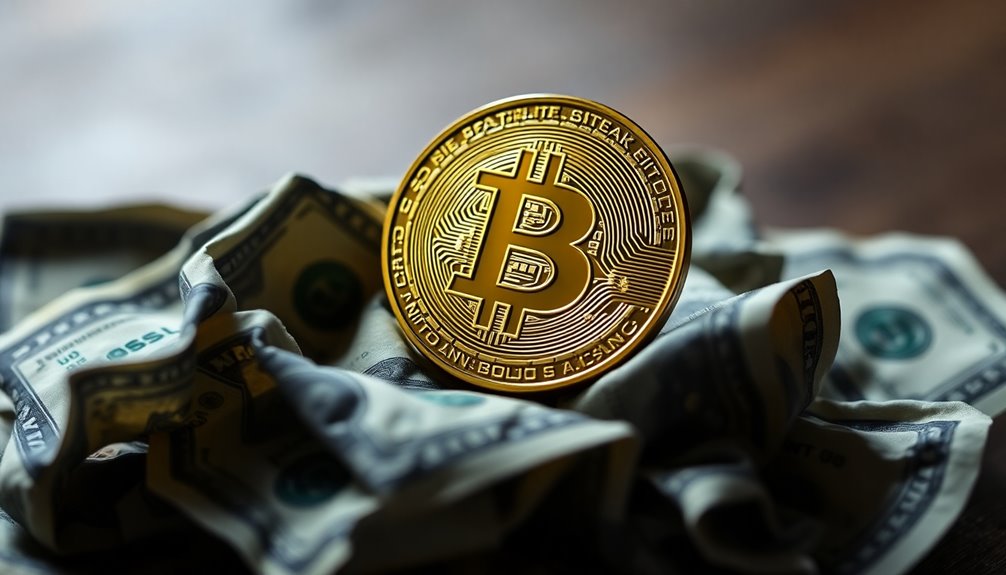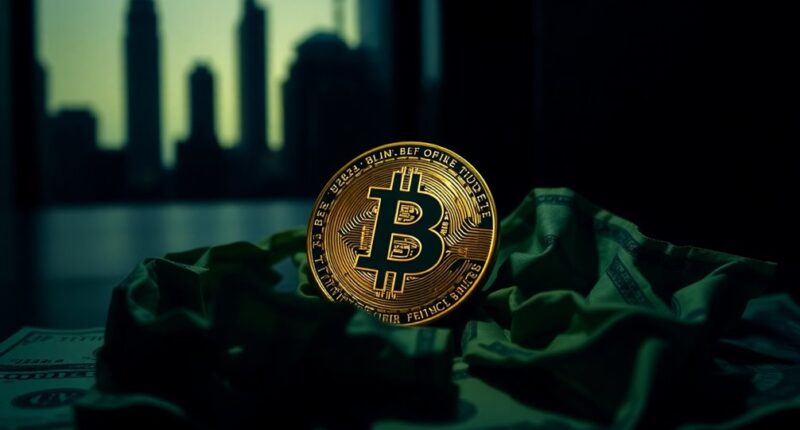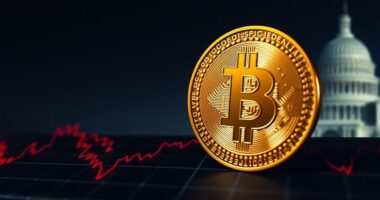You might find it intriguing that Robert Kiyosaki, known for his financial insights, views Bitcoin with skepticism, even calling it potentially fraudulent. Yet, he raises a compelling point: the US dollar's value is plummeting due to inflation and excessive money printing. Could it be that in this economic climate, Bitcoin, despite its flaws, presents a more stable option? The implications of this perspective could reshape how you think about investing.

As you navigate the world of finance, you'll notice a growing contrast between Bitcoin and the US dollar, especially in their roles as stores of value. While Robert Kiyosaki has raised concerns about the legitimacy of Bitcoin, many argue that the US dollar is facing even more significant challenges. The US dollar, once a reliable currency, is now under pressure from inflation and the consequences of excessive money printing, which erode its value and trustworthiness.
The contrast between Bitcoin and the US dollar highlights the latter's declining value amid inflation and excessive money printing.
In contrast, Bitcoin is often perceived as a more stable asset due to its limited supply and decentralized nature. The decline in confidence surrounding the US dollar has led many to explore alternative assets, including Bitcoin. With inflation continually gnawing at the dollar's purchasing power, it's no wonder people are seeking refuge in what they believe to be more robust investments. Moreover, public interest in digital assets is rising, further driving the shift toward Bitcoin.
Bitcoin's potential for growth is appealing, particularly as its user base expands. According to Metcalfe's Law, the value of Bitcoin increases as more people adopt it, suggesting that its network strength is only going to grow. Moreover, Bitcoin allows for peer-to-peer transactions without the need for intermediaries, enhancing its appeal in an age where many are questioning the integrity of traditional financial systems.
In contrast, the US dollar struggles with a reputation for economic instability and overvaluation. While Kiyosaki may view Bitcoin skeptically, many investors now see it as "good money," akin to gold and silver, especially as trust in fiat currencies declines globally. Gresham's Law reminds us that "bad money drives out good money," and many view the dollar as that "bad money."
As Bitcoin gains traction, it's driving people away from traditional assets. Even with concerns about scams or volatility, Bitcoin is often considered a better alternative than the declining dollar. The idea of Bitcoin being a Ponzi scheme pales in comparison to the ongoing issues associated with fiat currencies, which are at risk of significant corrections due to their overvaluation.
Ultimately, while Kiyosaki raises valid points about Bitcoin, the reality is that the US dollar's challenges may be more pressing. As you weigh your options, remember that the dynamic landscape of finance is shifting. Bitcoin's decentralized nature and growth potential could provide a more reliable store of value compared to the increasingly dubious status of the US dollar.









